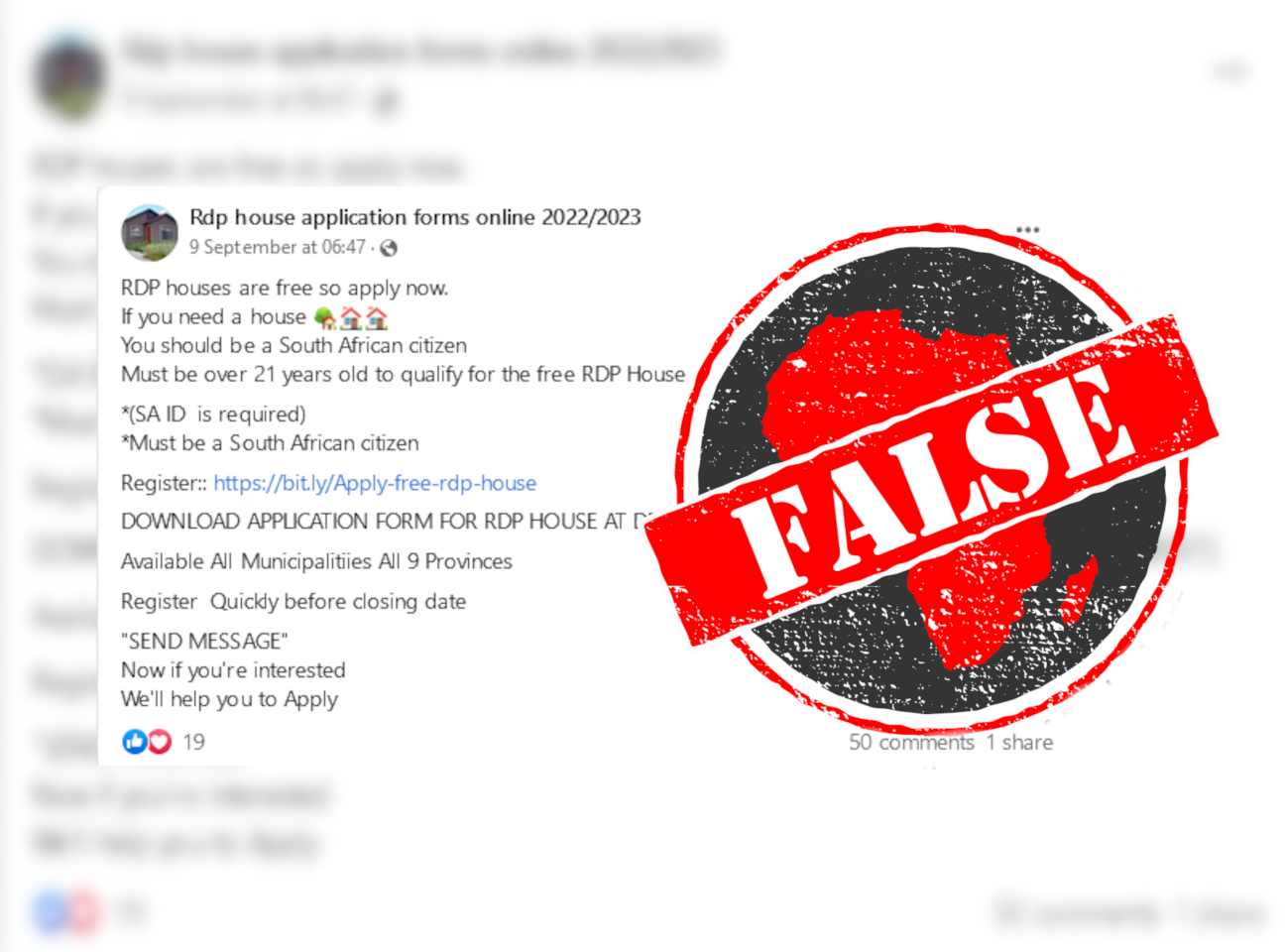IN SHORT: Several South African Facebook posts have made incorrect claims about who is able to apply for government-subsidised “RDP” housing, and how to do so. Government spokespeople have warned readers that the posts and the information in them are false.
“RDP houses are free so apply now” start several different posts doing the rounds on Facebook in South Africa.
Being a South African citizen and older than 21 are two of the few requirements for the free houses, say the Facebook posts.
The link given in the posts brings up a non-official suspicious-looking website.
When clicking “APPLY FREE RDP HOUSE”, another website opens headed “latest top learnership SA” with an article titled “RDP houses online application forms 2022”.
The reconstruction and development programme, or RDP, was the first socio-economic policy introduced by the African National Congress (ANC) government under president Nelson Mandela following South Africa’s first democratic elections in 1994.
While the RDP policy is no longer in place, government-subsidised housing in the country is still widely known as “RDP houses”.
The posts, websites and articles offering “free RDP houses” look suspicious and this is a red flag that the offer could be misleading. We investigated.

Debunked by department of human settlement
People who are given government-subsidised housing in South Africa still have to pay for municipal rates, such as water and electricity, according to the national human settlements department.
Those eligible for an “RDP house” should apply by visiting their provincial department of human settlements or at their local municipality. And there are more criteria to qualify than listed in the social media posts, including earning less than R3,500 per month per household.
And in a tweet, the Gauteng provincial department of human settlements made clear the Facebook posts were spreading false information.
“Please be warned of individuals creating social media pages that are spreading fake information regarding the application and allocation of houses,” the department said.
Republish our content for free
For publishers: what to do if your post is rated false
A fact-checker has rated your Facebook or Instagram post as “false”, “altered”, “partly false” or “missing context”. This could have serious consequences. What do you do?
Click on our guide for the steps you should follow.
Publishers guideAfrica Check teams up with Facebook
Africa Check is a partner in Meta's third-party fact-checking programme to help stop the spread of false information on social media.
The content we rate as “false” will be downgraded on Facebook and Instagram. This means fewer people will see it.
You can also help identify false information on Facebook. This guide explains how.


Add new comment